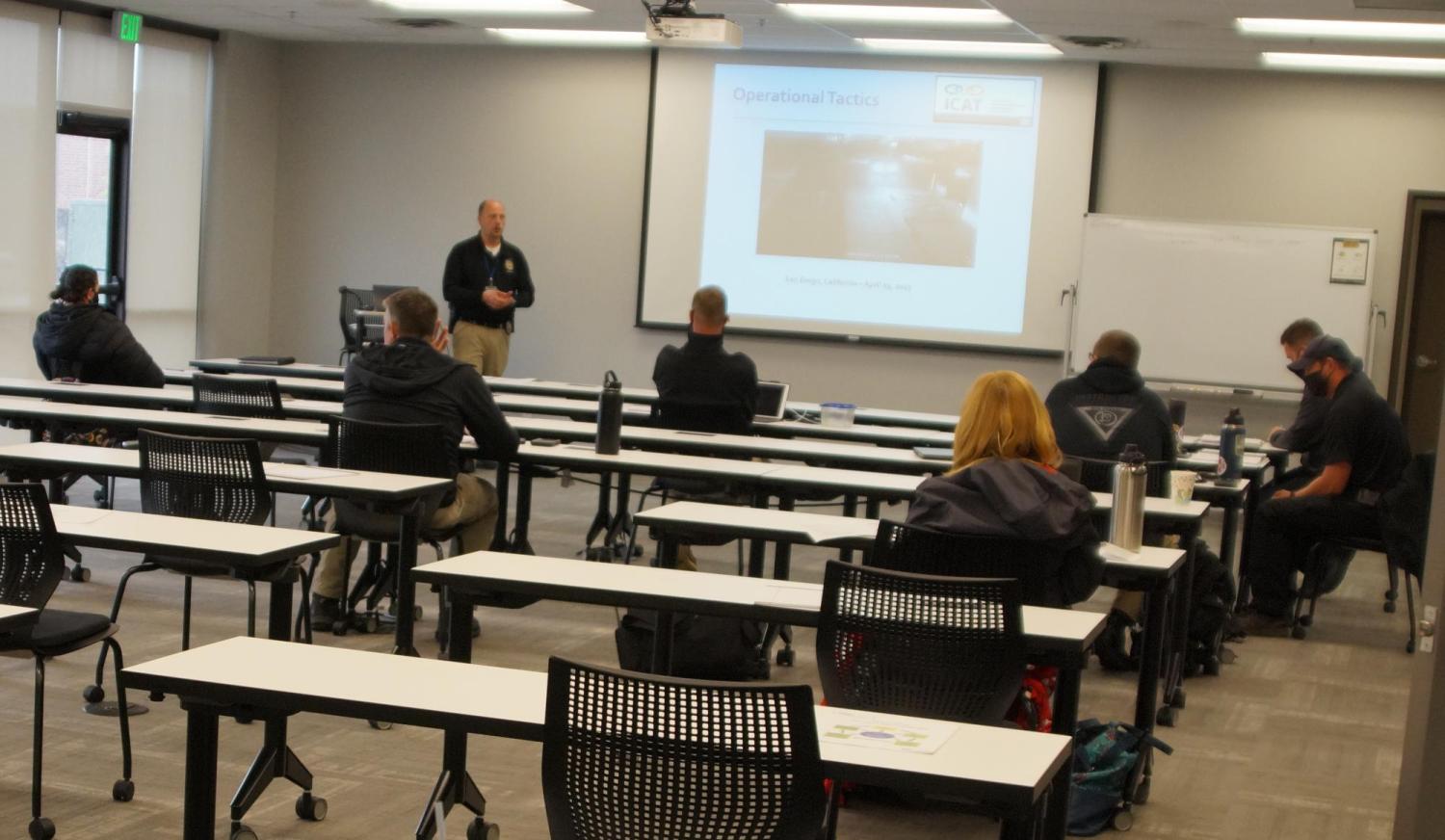CUPD provides training in groundbreaking techniques

A CUPD officer tries to de-escalate a situation where a person is holding a knife to their own neck in this ICAT training scenario.
“The training consists of lecture and real-life scenarios in decision-making, crisis recognition and response, communications and negotiations, and operational safety tactics,” CUPD Training Sergeant Brian Brown said. “Then, we apply those lessons in scenario-based training exercises.”
In recent years, police agencies from across the country have been providing their officers with specialized training on how to interact with persons who are in crisis because of mental health issues or other factors. Last fall, CUPD took that a step farther by introducing mental telehealth conversations into these types of calls. ICAT builds on those efforts by integrating communications and tactical skills with crisis intervention approaches.
“The ICAT training equips officers with the tools, techniques and skills needed to slow down some situations to find options that will safely resolve that situation,” said CUPD Chief Doreen Jokerst. “The core of the training is saving lives. It helps keep the public and the police officers safe and it helps build a better relationship with the community.”
CUPD is training their officers as well as officers from other departments who then take the training back to their home department to train their officers.

